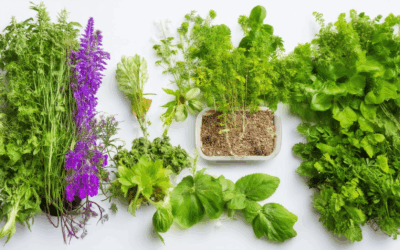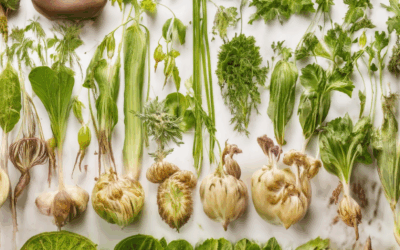Exploring non-GMO crop cultivation offers a fascinating delve into the intersection of bioengineering and sustainable farming practices, where innovation meets tradition to shape the future of agriculture. As demand for healthier, traceable, and environmentally responsible food sources continues to rise, non-GMO farming has emerged as a cornerstone of modern farming practices. This approach not only avoids genetically modified organisms but also embraces advanced techniques to enhance crop resilience and productivity. While bioengineering has its benefits, such as improving crop traits and reducing reliance on synthetic chemicals, it also presents unique challenges, particularly regarding seed compatibility and genetic drift. Farmers worldwide are increasingly exploring non-GMO methods, seeking to balance productivity with ecological stewardship. However, the debate surrounding bioengineered crops remains heated, with concerns about health implications and ethical considerations. Even major food chains like McDonald’s are grappling with the demand for transparency in sourcing bioengineered ingredients. As we navigate these complexities, the question arises: what does the future hold for non-GMO crop cultivation? With advancements in bioengineering and shifting consumer preferences, the landscape of global agriculture is poised for transformation.
Key Takeaways
- Bioengineered crops enhance sustainability by reducing pesticide use and boosting yields, aligning with eco-friendly farming practices.
- Golden Rice addresses malnutrition, providing beta-carotene to combat vitamin A deficiency in regions needing it most.
- Bt corn and Roundup Ready soybeans reduce chemical dependency, minimizing reliance on harmful pesticides.
- Bioengineered crops offer economic benefits, improving farmer livelihoods and market access.
- They protect the environment by curbing superbugs and preserving biodiversity.
- Public awareness is crucial to foster informed decisions about bioengineering in agriculture.
- The debate balances progress with concerns, addressing health, economic, and environmental impacts.
- McDonald’s commits to non-GMO ingredients while exploring biotech in plant-based foods for future options.
- Ethical and cultural factors shape perceptions of bioengineering, influencing policies and consumer choices.
- Transparency builds trust, as seen in McDonald’s efforts to maintain customer confidence.
- Sustainable farming practices are enhanced through bioengineered solutions that optimize resource use.
- Bioengineering aids global food security, helping to feed a growing population sustainably.
- A balanced approach is needed to regulate bioengineering for environmental and economic protection.
- Biotechnology’s role in agriculture includes solving global nutrition issues and fostering innovation.
- Dialogue is essential among experts, policymakers, and consumers to address concerns effectively.
- Future potential lies in plant-based alternatives, leveraging biotech to meet dietary demands.
- Farmers benefit from improved yields and reduced pest-related losses.
- Long-term benefits extend beyond immediate gains, impacting nutrition and environmental health.
- Innovation drives agricultural advancement, utilizing cutting-edge techniques for better outcomes.
- Educating consumers is vital to dispel myths and promote informed discussions about bioengineering.
What is Non-GMO Farming?
Non-GMO farming refers to agricultural practices that avoid the use of genetically modified organisms (GMOs) in crop production. This approach focuses on traditional breeding methods and natural selection to develop plant varieties, ensuring that crops remain free from genetic modifications.
Benefits of Non-GMO Farming
- Healthier Crops : Non-GMO crops are often linked to higher nutrient content and fewer pesticides, potentially leading to healthier foods for consumers.
- Environmental Sustainability : The use of non-GMO seeds and practices can reduce chemical runoff and promote biodiversity, contributing to ecosystem health.
- Reduced Risk : Concerns about the long-term effects of GMOs on human health and the environment have led many consumers and farmers to opt for non-GMO alternatives.
- Traditional Breeding : Non-GMO farming relies on age-old techniques like selective breeding and hybridization, preserving centuries of agricultural knowledge.
Why Non-GMO Matters
- Consumer Demand : Many people prefer non-GMO products due to concerns about food safety and ethical farming practices.
- Labeling Requirements : In many markets, products labeled as “non-GMO” must meet strict standards, ensuring transparency for buyers.
Supporting Non-GMO Farming
- Choose Non-GMO Products : Look for labels indicating non-GMO status when purchasing food and agricultural products.
- Advocate for Sustainable Practices : Support farmers who prioritize non-GMO methods and sustainable farming techniques.
For more information on non-GMO farming and traditional gardening methods, visit Old Seed and explore their resources on heirloom seeds and sustainable agriculture.
Learn more about Old Seed’s commitment to non-GMO farming and sustainable practices.
Understanding Bioengineered Substances and Their Impact
Bioengineering involves the deliberate modification of an organism’s DNA to produce desired characteristics. In the context of food production, this process can result in crops or livestock with traits that enhance productivity, such as increased yield or pest resistance. However, these modifications can also introduce substances into the human body that may pose risks.
When bioengineered foods are consumed, they may contain novel proteins or compounds that the human body has not previously encountered. This can trigger immune responses, potentially leading to allergic reactions or other adverse effects. Additionally, the presence of certain genetically modified organisms (GMOs) could introduce toxins that bypass natural detoxification processes, posing health risks.
One significant concern is the potential for bioengineered organisms to contribute to antibiotic resistance. Genetic modifications might inadvertently transfer antibiotic-resistant genes into harmful bacteria, complicating treatment options and public health.
Furthermore, the alteration of plant structures through bioengineering can affect nutrient composition and digestibility. Changes in the plant’s natural chemistry might lead to altered metabolic pathways, impacting how nutrients are absorbed and utilized by the body. This could disrupt normal bodily functions and contribute to imbalances in gut microbiota, potentially leading to gastrointestinal issues or immune dysfunction.
Long-term effects of bioengineered substances on human physiology remain a subject of ongoing study. While initial assessments suggest caution, continued research is essential to fully comprehend the implications for human health and to develop safer bioengineering practices.
Why Can’t Farmers Replant GMO Seeds?
Farmers are typically restricted from replanting genetically modified organism (GMO) seeds due to legal agreements they enter into when purchasing these seeds. These agreements are often tied to intellectual property rights, particularly utility patents, which protect the technology used in producing GMO seeds.
When farmers purchase GMO seeds, they usually sign contracts with seed companies. These contracts stipulate that the seeds cannot be saved and replanted for the following growing season. This restriction is crucial for maintaining control over the propagation of GMO seeds, especially in self-pollinating plants like soybeans, where the genetic material can be easily preserved.
The legal protections extend beyond just the physical seed; they encompass the specific traits and technologies embedded in the seeds. Utility patents grant exclusive rights to the innovations, making it illegal for farmers to independently develop or reproduce these seeds without permission.
This contrasts with non-GMO seeds, which are not subject to such restrictions. Farmers can freely save and replant these seeds without worrying about legal consequences, as they lack the proprietary technology associated with GMOs.
In summary, the inability to replant GMO seeds is primarily due to the contractual and legal frameworks surrounding their production and distribution, ensuring that farmers adhere to the terms set by seed companies and patent holders.
What is the Most Bioengineered Food in the USA?
The most bioengineered food in the USA is often associated with genetically modified organisms (GMOs), which are plants or microorganisms that have been altered through genetic engineering to enhance desirable traits. These modifications can improve yield, resistance to pests, and nutritional content.
One of the most widely grown bioengineered crops in the USA is Bt corn . This variety has been genetically modified to produce a bacterial toxin that kills pests like corn borers, reducing the need for chemical pesticides and increasing crop yields.
Another prominent example is Roundup Ready soybeans . These beans are engineered to tolerate glyphosate, a herbicide that kills weeds, making weed control more efficient and reducing the need for manual labor in fields.
Additionally, GMO golden rice has been developed to contain beta-carotene, a nutrient that helps prevent vitamin A deficiency. This biofortified rice is particularly important in regions where vitamin A deficiency is prevalent.
Other notable bioengineered foods include:
- StarLink corn : Insect-resistant corn developed using the Bacillus thuringiensis (Bt) gene.
- Certified Potatoes : Varieties like Yukon Gold potatoes are bred to resist potato blight, a fungal disease that can destroy crops.
- Sugarbeets : Modified to produce fuel ethanol, contributing to renewable energy sources.
These bioengineered foods play a crucial role in modern agriculture, enhancing productivity and sustainability while addressing global challenges like malnutrition and environmental degradation.
For more information on bioengineered foods and their benefits, visit our main page .
Why Are People Against Bioengineered Food?
People may oppose bioengineered food, or genetically modified organisms (GMOs), for several reasons, each rooted in different concerns:
- Health Concerns : Some individuals worry that GMOs could pose health risks, potentially leading to allergies or other adverse effects. While the World Health Organization states there’s no conclusive evidence of harm, fear and distrust of the technology persist.
- Economic Impact : Critics argue that GMO crops favor large corporations, potentially threatening smaller farms and organic growers who face competition from genetically modified varieties.
- Environmental Impact : Opponents highlight potential ecological consequences, such as increased pesticide use and the creation of “superbugs,” which could harm biodiversity and ecosystems.
- Ethical Considerations : There’s concern about humanity’s role in altering nature and the potential for corporate monopolies over seed production.
- Regulatory Issues : The lack of mandatory labeling in some regions has led to calls for transparency, while opponents of labeling argue it complicates trade and increases costs.
- Cultural Preferences : Traditional and cultural practices may influence resistance to new technologies, particularly when introduced rapidly without sufficient public discourse.
- Corporate Influence : Companies profiting from non-GMO products, such as organic food producers, may amplify anti-GMO sentiment through marketing and advocacy.
- Misinformation : The spread of false information via social media and anti-GMO groups exacerbates fear and skepticism, influencing public opinion despite lacking empirical support.
These multifaceted concerns underscore the complex debate surrounding bioengineered food, reflecting a blend of scientific, economic, ethical, and cultural factors.
Is McDonald’s Bioengineered Food?
McDonald’s does not currently use bioengineered ingredients in its food offerings. The company has made it clear that it does not source genetically modified organisms (GMOs) in its beef, chicken, eggs, or dairy products. McDonald’s has implemented measures to ensure that its suppliers adhere to strict guidelines regarding the use of non-GMO ingredients.
However, it’s important to note that McDonald’s is open to exploring biotechnology in plant-based ingredients as part of its commitment to innovation and sustainability. The company is actively working on developing alternative protein sources that could potentially include bioengineered components in the future.
For now, McDonald’s focuses on serving conventional ingredients while maintaining its commitment to transparency and customer trust.








0 Comments